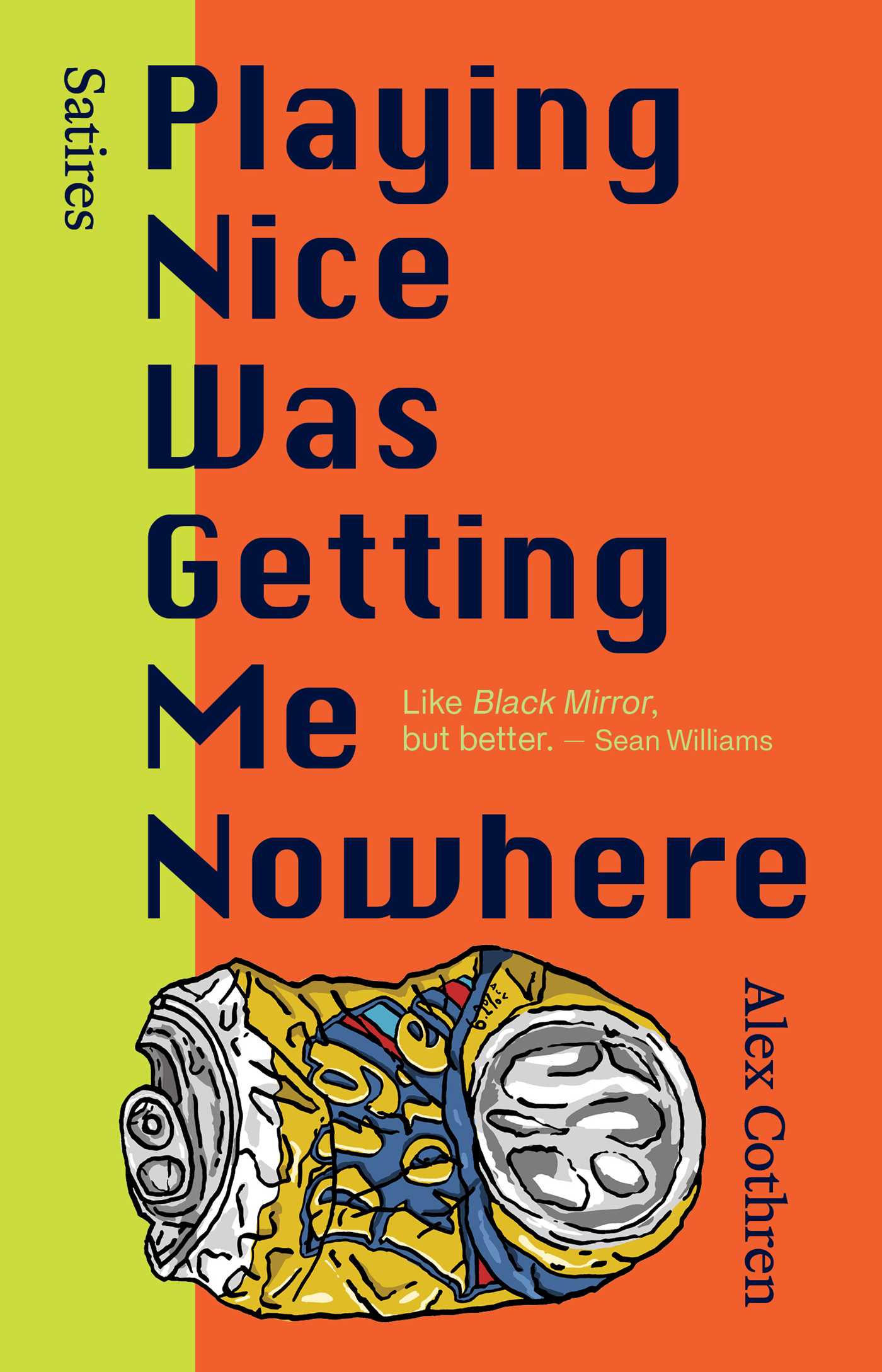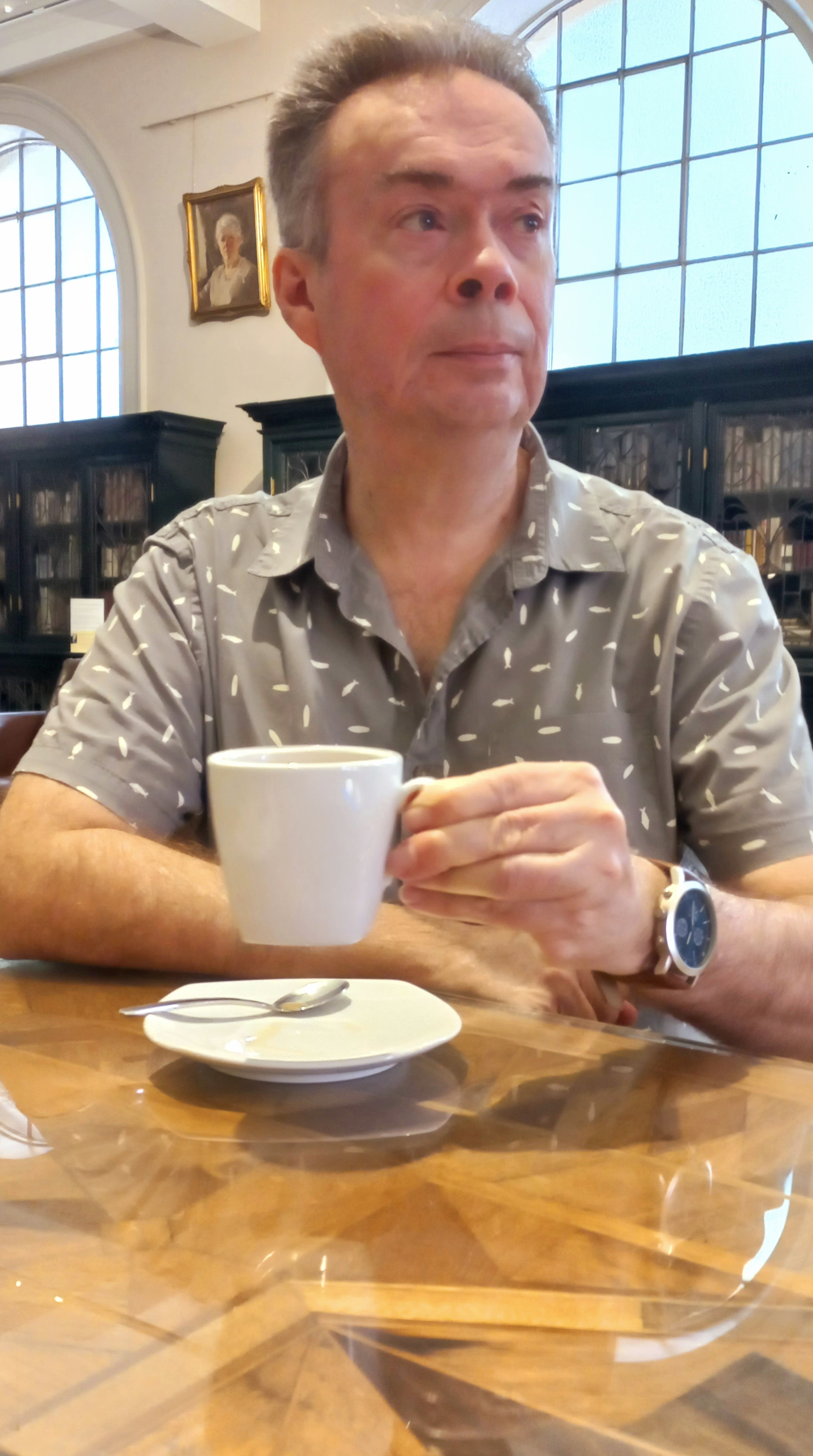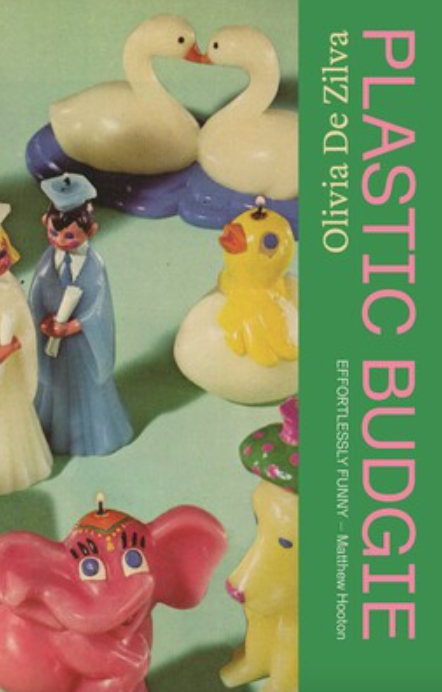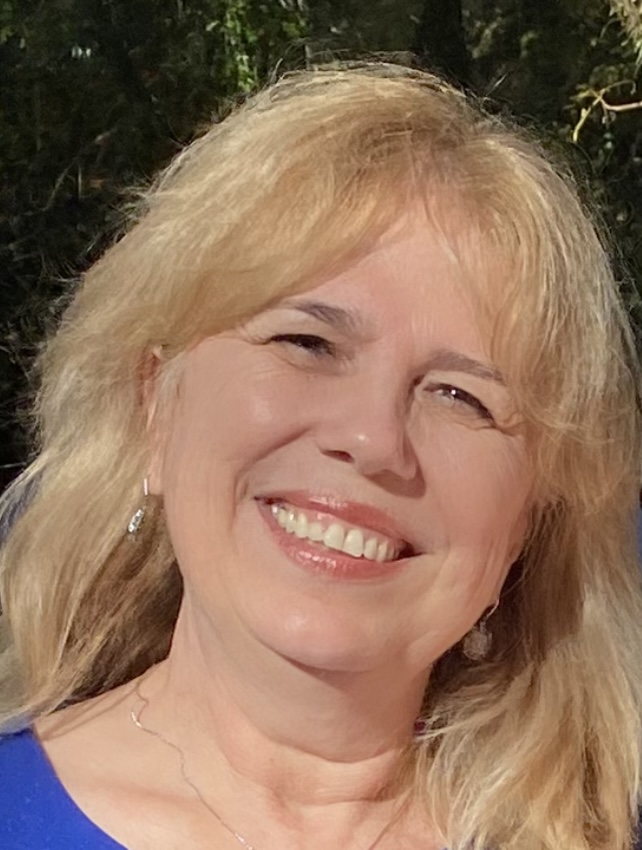Book reviews
Book reviews
Pink Shorts Press
By on
Book title: Playing Nice Was Getting Me Nowhere by Alex Cothren

Reviewer: Garth Thomas
Welcome to the short fiction lab! Author Alex Cothren is the scientist … or is he more an alchemist or sorcerer? He weaves his magic through this compendium of short stories whose writing palettes draw from straight prose, a mock academic thesis, a parody transcript of a Royal Commission and even a tilt at a Reddit-style online chat. This is satire. This stretches the craft envelope. This is an author flexing their literary muscles.
These stories are set five or ten years into the future, where mankind’s shrinking ethics and increasing technology are doing us little favour. Climate change, so-called ‘illegal’ immigration, the switch from thoughtful love to lazy computer algorithms, quick medical ‘fixes’ – all are used to the genre’s ultimate purpose: to explore The Human Condition. And as the title suggests, ‘playing nice’ isn’t getting anyone, anywhere. These players are telling lies and ignoring truth, all to get away with their crimes.
This collection is an artist pushing the boundaries of the written word. Expect stream-of-consciousness, deliberate dropping of punctuation, experiments in exposition and other quirks to keep any adventurous reader on their toes.
There are favourite entries in this collection to applaud. ‘Big Love’ is one of the more straightforwardly-told stories, but has a lot of heart and soul. It tells of a time where the elderly are cared for by flying drones anticipating their every want and whim, but can’t fulfil the need of human compassion. Even an elderly man’s son, who works for the provider corporation, can’t see what his father truly desires. It questions the downgraded value of aged care in the capitalist framework, and how we lose so much in our later years, things that machinery can’t replace.
‘Playing Nice Was Getting Me Nowhere’, is another gem, related in the style of a PhD thesis, describing the cutthroat industry that university academia may become. Expect ambition, expect cold-heartedness and expect murder. While outrageous, there’s a sense of truth in its sentiment, we’re left wondering how close Australia’s university system is getting to what’s depicted. It’s a clever piece of writing with a clever double-punchline at the conclusion. It does raise a laugh, albeit a bleak one.
‘Where’s a Good Place for an Adult to Hide?’ is as hilarious, and once again the underlying sentiment rings true: where can a weary adult hide from all the pressures of parenthood, partners, workload and all the other traumas that grown-ups must confront? Escaping the stress could be a lot simpler than you imagine: the unlikely solution is in the kitchen. This witty piece unfolds as a series of email postings (i.e. Reddit), a modern-day format recounting everyday despair. It’s all conveyed in posted texts complete with symbols, so no room for descriptive lyricism here. It makes the story feel more authentic and proves an effective technique from the author’s bag of tricks.
That bag of tricks also includes a variety of narrative voices – Alex Cothren is quite the writing chameleon. Meet Dick Champion, a cynical football scout, searching the detention centres up north for the most violent athletes (they don’t play ‘nice’, but they play well). Meet Desiree Marley, a ‘coral restoration artist’ whose job is to repaint dead coral to make it look alive for the tourist trade – another example of the power of lies over truth. Marley’s voice is part hippy, part-sarcastic businessman, part-unflinching realist, but all very (and darkly) humorous. It’s yet another case study of the neoliberal environment Cothren portrays, where ‘playing nice’ is never going to win.
It’s a slim volume, quick to get through, as the reader is indulged with an edgy mix of visions and nightmares. It’s a creatively refreshing, if disturbing, prophecy on where we all may be heading. Perhaps, we’re kind of there, already. Cothren opens our eyes to the society we’ve earned and become, but don’t necessarily want – short-term profit winning, over long-term gain, the blind eye that refuses to acknowledge impending disaster – and where ‘playing nice’ could actually remedy our plight but remains overlooked as the cure.
Loved reading about Playing Nice Was Getting Me Nowhere? Imagine the impact of helping a child discover their first favourite book.
By supporting Booktober, you’re helping the next generation in Western Sydney and regional NSW find their voice - and maybe even write the books you’ll be reading in the future.
Donate today at booktober.org.au/donate
Or Support a Bookworm like Garth at booktober.org.au/users/garth-thomas
Reviewer’s bio:

Garth Thomas spent 35 years at the Australian Broadcasting Corporation editing for the programs The 7.30 Report, Lateline, Australian Story and Foreign Correspondent (winning an Ellie Award in the documentary category), but now in retirement wants to tell his own stories. Garth completed the Year of the Novel course at Writing NSW in 2023. He was praised for his ‘clear, strong narrative voice’, ‘vivid characters’ and ‘sharp, clear, inviting prose’. His thoughtful remembrance True Drug, True Story appeared in the online magazine Ink. He is also a member of a regular writing group who meet to discuss all things writing and reading, as well as tapping out some new paragraphs. In 2025, Garth was inducted into the WestWords Academy Program. His short story, The Oort Cloud won a Highly Commended prize in the Living Stories competition and was published in the anthology Only I Can Say. The judges described his work as ‘humorous, contemplative and emotionally resonant’. Garth continues to develop his writing craft, penning novel manuscripts and short stories while enjoying the camaraderie that WestWords encourages and provides.
Book title: Plastic Budgie by Olivia De Zilva

Reviewer: Mersija Ilic
Olivia De Zilva’s Plastic Budgie is a beautifully crafted and unconventional autofiction novel that delves into the universal experience of acceptance, loneliness and mental health. It is set against the backdrop of the migrant experience in the suburbs of Adelaide in the late 1990’s and early 2000’s. This compelling work resonated with me on many different levels–as a migrant child growing up in Australia, as a mother and grandmother, and as a child who was affected by domestic violence.
Plastic Budgie begins with the author’s humorous portrayal of the circumstances surrounding her birth, through to her first day of school, her adolescence, and into her adulthood. We are confronted with the heartbreaking experience of racism on her first day at school, the loss of her voice because of that incident, the loss of her pet budgie and pet duck, and many other heart wrenching moments as she navigates her way through life.
Her Cantonese-speaking grandparents, Poh Poh and Gong Gong, are there with her every step of the way. Through their backstory, and their devotion to their grandchild, we learn of the struggle, the beliefs and sacrifices made by that generation of migrants. It explores the feelings of embarrassment and subsequent guilt first/second-generation children can experience because of their parent’s or grandparent’s cultural and language differences. The author’s reflection on this helps us understand how growing up and coming to terms with our own identity and background can enable us to embrace the richness of our unique ancestry. It’s a beautiful glimpse into the love, and significant contribution our relationship with our grandparents, can bring.
Throughout the novel, the narrator’s humour and wit are refreshing, as they offset the darker and more serious themes of racism, bullying and trauma. It is the exploration of darkness and dual identity in the second part of this novel which I found truly captivating. The author portrays this through the two voices of “she and her” and manages to capture the internal struggle to accept and incorporate these voices into the adult self. Snippets of the narrator’s memories come together in the end to provide the reader with a cohesive, thought-provoking portrayal of childhood, adolescence and early adulthood. In these terms, Plastic Budgie can be considered a charming and insightful coming-of-age read.
Loved reading about Plastic Budgie? Imagine the impact of helping a child discover their first favourite book.
By supporting Booktober, you’re helping the next generation in Western Sydney and regional NSW find their voice - and maybe even write the books you’ll be reading in the future.
Donate today at booktober.org.au/donate
Or Support a Bookworm like Mersija at booktober.org.au/users/mersija-ilic
Reviewer’s bio:

Mersija Ilic is a an emerging memoir writer based in Campbelltown. Her work explores the issues faced by women when confronted with domestic violence, lack of education, poverty and fear. She believes that the power to survive and to create a better world lies in the sharing of these stories.